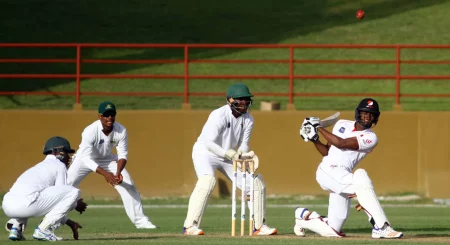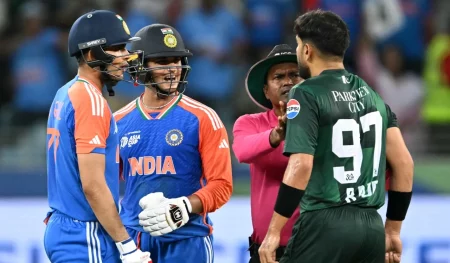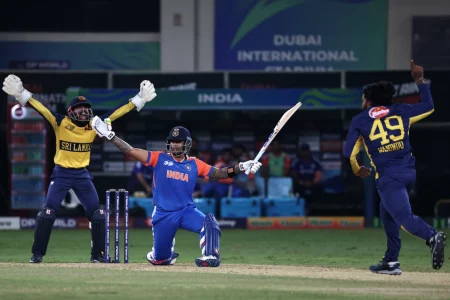India vs Pakistan games are always a big deal. This year, even more so, with the two teams meeting for the first time since their recent escalation following the Pahalgam Attack in April.
The best way to deal with the pressure in the lead up to such a huge game, according to India batting coach Sitanshu Kotak, is to channel all attention toward the match itself.
“For the players and for us,” Kotak said ahead of the team’s training session on Friday, “once the BCCI says and they are aligned with the government, we are here to prepare and we are here to play. It will be a competitive game. An India-Pakistan game is always a competitive game. So, we would rather focus on that.”
The game is just one sleep away, though calls to boycott continue. Pakistan and India have never shared good relations, and the recent military skirmish has made things more grim for both sides as well as their prospects of playing cricket against one another. When asked if the boycott noise back home made it difficult to focus on preparations, Kotak was clear in his response.
“Honestly, I don’t think so [not tough],” Kotak said. “Once we are here to play, I think players are focused on playing cricket. I personally don’t think they have anything in mind apart from playing cricket. And that’s what we focus on.”
India’s opening game against UAE was their first T20I match since February. With a relatively younger side, selection conundrums were bound to sprout up. For instance, India were expected to leave Sanju Samson out, with Shubman Gill opening alongside Abhishek Sharma. Instead, Samson was slotted into the middle order for the first game. Kotak said while there is some consistency in the top order choices, they have a flexible batting lineup for the remaining numbers, where anyone can bat at any number.
“If you look at our batting line-up, everyone is capable of going to any number and finishing the match,” Kotak explained. “Although, we have four-five aggressive players who, according to the situation, either the head coach or the captain decides where to send them. More or less, everyone is prepared to bat at any number.”
“So there is nothing fixed. Everyone knows their role. So, according to the situation, they will be ready. Obviously, the openers and No. 3, we think about particular players. But after that, if required, I think all the players also now mentally and skill-wise, they are prepared to bat at any number. And I think that’s a good sign.”
This flexibility within the batting lineup has given India a foolproof pathway to dominate the final stages of games, so believes Kotak.
“Everyone knows their role,” he said. “One thing. Maybe we have more than one finisher. So, seriously, depending on the situation, we can go accordingly.”
“Because if you look at Shivam, if you look at Hardik, if you look at Axar, they all can do whatever is required depending on who is bowling, which bowler of the opposing team is left, how is the wicket. So, it is a great thing to have, where you have three [or] four guys who can go at any number.”
Another interesting choice that India made during their opening game was to bench Arshdeep Singh, India’s highest wicket-getter in T20Is. The left-arm pacer was dropped to play both Varun Chakravarthy and Kuldeep Yadav together. Kotak didn’t hesitate in saying that selections are based purely on the conditions, if the Dubai pitch inclines towards spinners again, they will take similar decisions.
“Everyone knows that there is no agenda,” he said. “There is no personal liking, disliking. Whatever is best for the team, the captain and head coach will decide and do that. And I don’t think there is any doubt in anybody’s mind. So, whoever is not playing, they are always trying to help the guys who are playing. And I think that’s the way the team should play.”



